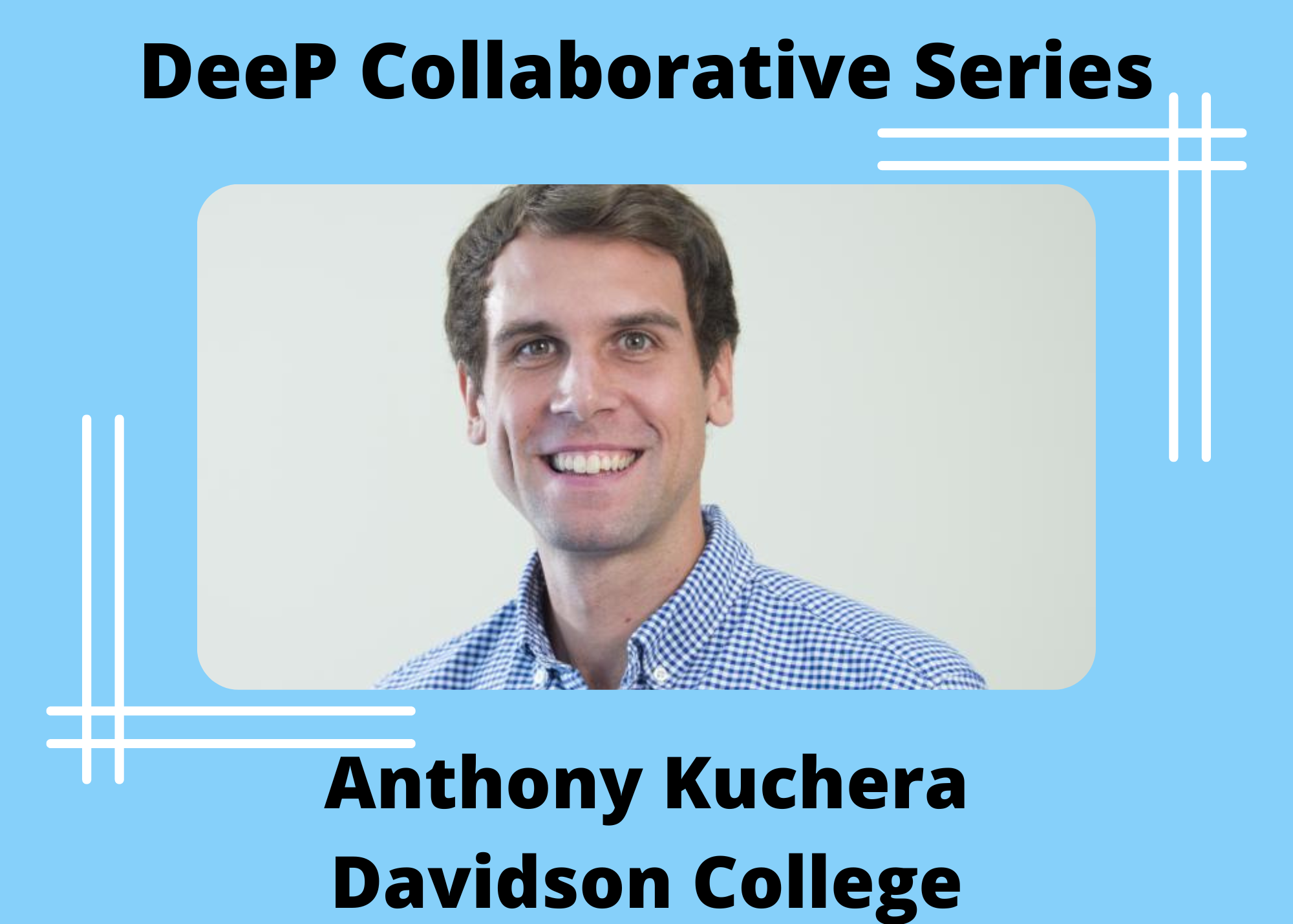
By Anthony Kuchera (Assistant Professor of Physics at Davidson College, DeeP Collaborative Member)
The Deliberative Pedagogy (DeeP) Faculty Collaborative consists of 20+ faculty from Davidson College and five other Associated Colleges of the South institutions who are committed to learning and implementing new ways to improve and deepen the quality of their class discussions. These faculty come from a wide array of disciplines and backgrounds. They come together to study and discuss different deliberative pedagogy methods, share their ideas and questions with one another, and work to embed deliberation in their classrooms. In this special blog series, members of the Collaborative describe and reflect on their experiences developing and teaching their deliberation-involved courses.
As a nuclear physicist who primarily teaches upper-level physics courses, I was initially intimidated to teach a Writing 101 course at Davidson College. This is a required course for all first-year students that can be taught by faculty members across the college. With help and guidance from the former director of the Davidson College Writing Center, I gained confidence that the theme of my course, the intersections of nuclear science, technology, and policy, was worthy for a writing course and of interest to the Davidson students. In May 2023 I completed teaching the course for the third time. As a result of my participation in the Deliberative Citizenship Initiation (DCI) Deliberative Pedagogy (DeeP) Faculty Collaborative during the 2022-2023 academic year, I feel that it was the strongest yet. By participating in the readings, trainings, and interactions with other students and faculty, I found a significantly better way to approach discussions on difficult topics in the classroom.
In many physics courses, there is a focus on the scientific concepts, mathematical framework, and problem solving. Typically, there is not much discussion on contentious issues. In the WRI 101 course I teach, the idea is flipped. There is very little focus on the scientific details (but enough for students to understand generally what is going on) and a primary emphasis on analyzing the ways in which nuclear science and its applications are understood, perceived, regulated, and implemented to solve societal needs. I regularly emphasize to the students that the nucleus of the atom holds incredible potential for applications in energy, medicine, and other industries, but it comes with (often significant) risks. Because of this risk-reward situation, there is a broad spectrum of ideas on how nuclear technologies can and should be used.
In the first two iterations of this course, I found the in-class discussions to generally be less than satisfying with only a few eager students willing to engage and mostly responding just to me and not the other members of the class. I take the blame for this as I didn’t have a great strategy to facilitate these discussions. This lack of preparedness is what motived me to join the DCI DeeP Faculty Collaborative.
In Spring 2023, I updated my WRI 101 course to incorporate deliberations into my curriculum. The course is structured with four major topics: radiation and the public, development of nuclear weapons, nuclear power, and current political situations with nuclear technologies. Each topic has a major writing assignment. The deliberations were held about one week before the due date of the writing assignments. This was intentional, and gave students sufficient time to consider other perspectives to issue and the argument(s) they are making. In each writing assignment it was expected that students respond to viewpoints other than their own and the deliberation gives an opportunity to hear what those are and why others might have those perspectives. Each deliberation took place for about 35 minutes in class with 10 minutes at the end for the students to write a reflection on their experiences.
I was pleasantly surprised by the reactions and feedback from the twelve students in the class. They all seemed to thoroughly enjoy the deliberations. The deliberations provided a way for students to interact with each other and not just respond to me. I was fascinated to see students take initiative to ask fellow students questions about their perspectives. I also was grateful to see students engage respectfully when disagreeing with each other. Ultimately, this is what I wanted to see happen. I hoped students would discover what they believe and find out what leads to others having different perspectives. In holding these deliberations, I found a solution. Future iterations of this course will certainly continue to have deliberations and I am now trying to find ways to include some in other courses I teach.
